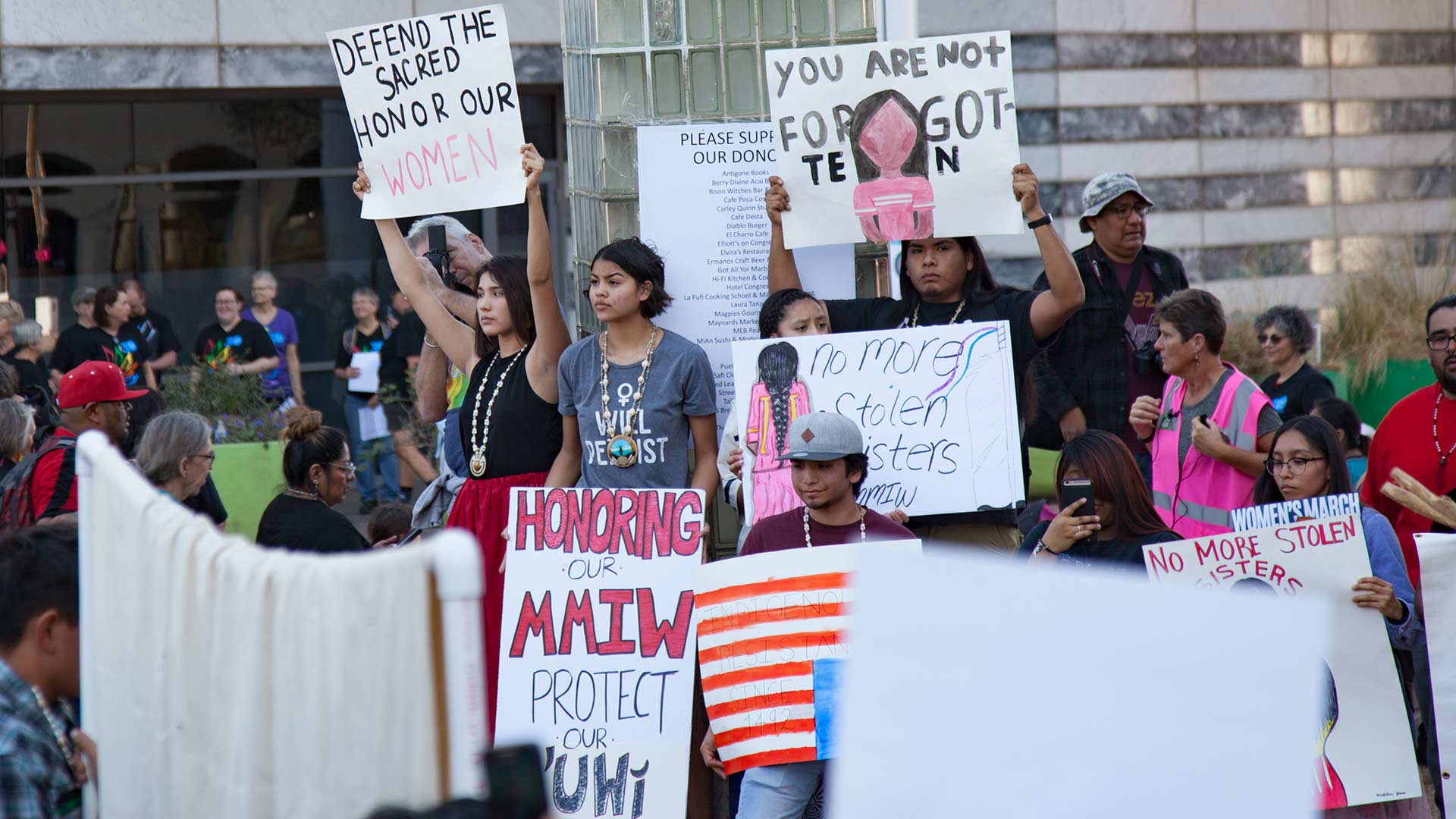 Demonstrators at the 2019 Tucson Women's March carry signs reading "MMIW" ("missing and murdered Indigenous women") and "no more stolen sisters."
Demonstrators at the 2019 Tucson Women's March carry signs reading "MMIW" ("missing and murdered Indigenous women") and "no more stolen sisters."
New Mexico's task force investigating missing and murdered Indigenous peoples sent in its final report Wednesday to the state's governor and lawmakers.
According to a press release from the Navajo Nation, 32 cases (3%) from 2014-2019 listed in the New Mexico Missing Persons Information Clearinghouse have been solved. There are 954 people who are still lost, and of those, 9.5% are American Indians or Alaska Natives.
Over the last year, the task force has gathered data, recorded testimonies from Indigenous people affected by the violent crisis and recommended changes to the state.
The task force is calling to fully fund and staff tribal courts and judiciary systems so they can better enforce current tribal and federal laws.
Navajo Nation first lady Phefelia Nez said it's also the responsibility of tribal legislative bodies to create and amend laws to protect Indigenous people from crimes, such as human trafficking.
The Navajo Nation is currently developing its own missing person unit.

By submitting your comments, you hereby give AZPM the right to post your comments and potentially use them in any other form of media operated by this institution.